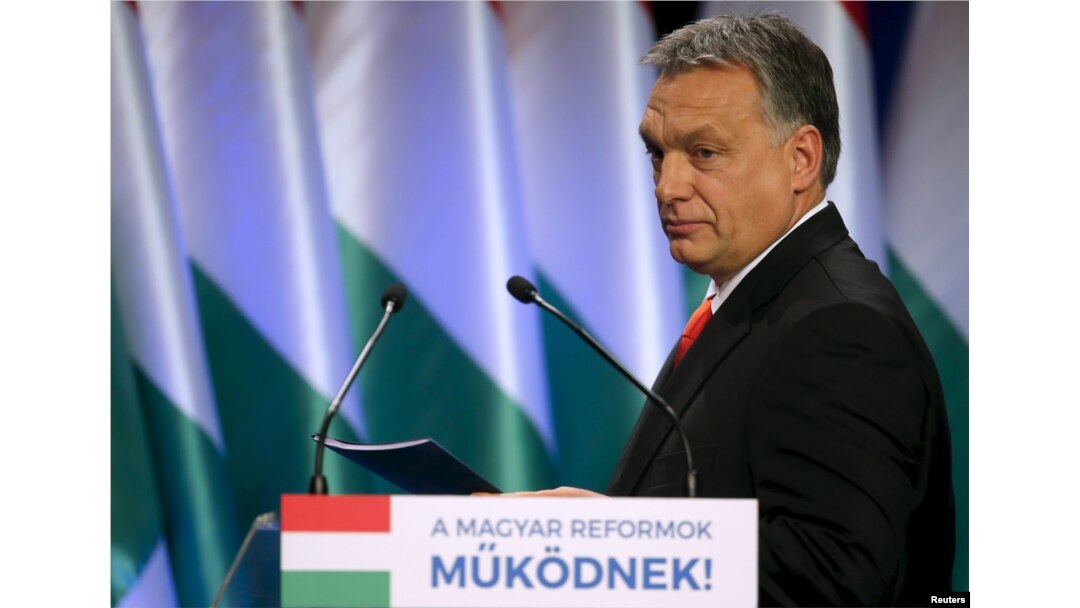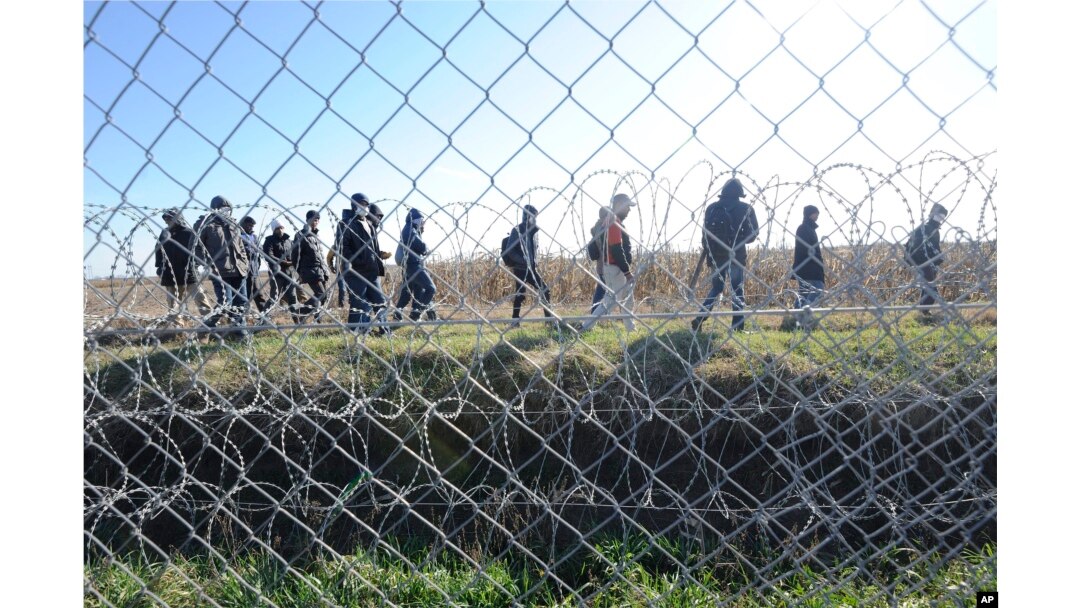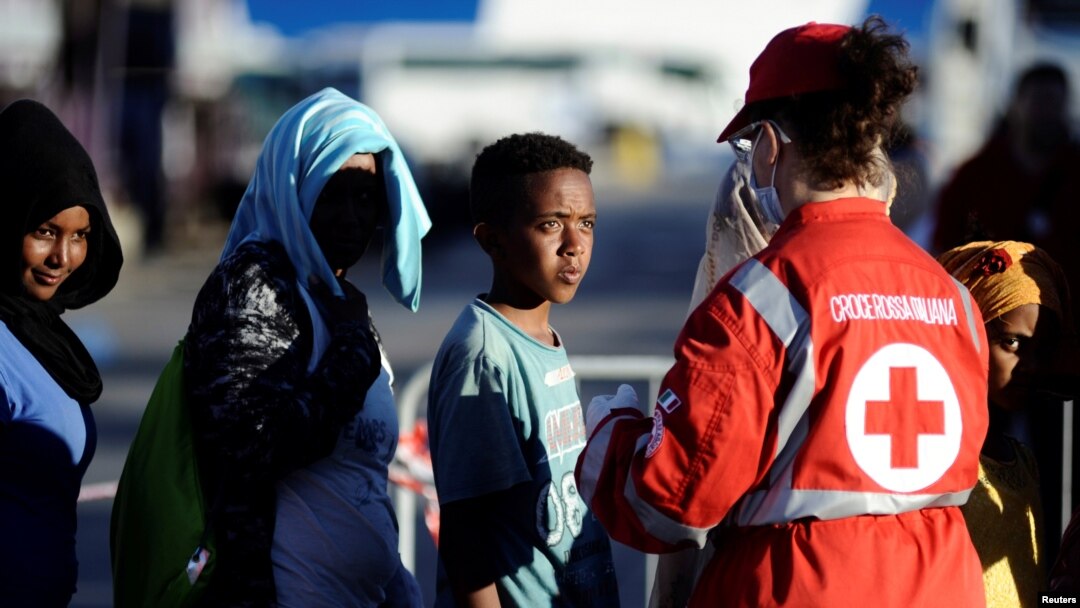In rubber dinghies and rickety wooden boats, refugees and migrants have been risking their lives in increasing numbers crossing the Mediterranean in one desperate expedition after another from Libya.
The voyages have been making a mockery of the European Union’s claim it has control over its southern borders, and a referendum in October in Hungary threatens to further undermine the European bloc’s efforts to stay on top of a crisis that has been roiling the continent and fueling the rise of far-right anti-immigrant parties.
Pollsters predict a majority of Hungarians will signal in the referendum that they don’t want the EU to resettle non-Hungarian citizens in Hungary without the approval of the anti-immigrant dominated National Assembly. A vote against the bloc’s troubled mandatory migrant relocation plan will likely encourage other EU states, mainly central European governments, to dig in and continue to refuse to accept Brussels-designed quotas to share the burden of resettling war refugees and economic migrants from the Middle East and Africa - a key plank in the EU’s migration policy.

FILE - Hungarian Prime Minister Viktor Orban in Budapest, Hungary, Feb. 28, 2016.
Hungary's hardline prime minister, Viktor Orban, who has been leading the ‘keep them out’ campaign, expects record numbers to turn out for the Brexit-inspired plebiscite and deliver a snub to Brussels bureaucrats.
In one recent speech, Orban said, “We don't want to change the character of our country. We want to remain Hungarian, to keep our religious and ethnic composition…They want to force rules on member states that are in conflict with their interests, including Hungary's. We are preparing for a conflict.”
Earlier this year, Orban ordered Hungary’s borders with Serbia and Croatia closed, although that has not stopped migrants still crossing into Hungary - 14,000 are believed to have done so illegally.

FILE - Migrants walk behind a temporary protective fence at the border between Hungary and Serbia near Morahalom, southeast of Budapest, Hungary, Feb. 22, 2016.
While the political focus, when it comes to the future of EU migration policy, currently is on Hungary, the on the ground crisis is in Italy, which, since March, has been in the eye of the migration storm once again. Since the Europeans struck a deal with Ankara in March, under which migrants arriving at Greek islands from Turkey are supposed to be sent back, the flow of refugees from Turkey to Europe has receded dramatically.
The migrant crisis is like a balloon -- pressed at one point, it bulges at another. More than 118,000 people have made the perilous journey from Libya to Italy so far this year, 3,000 of them dying in the attempt. About 15,000 have been picked up off the Libyan coast since August 28.
Nothing seems to arrest the traffic, including the much-trumpeted EU naval interdiction operation. Nor has a high-profile, hard-hitting Italian government online campaign launched just over a month ago and called ‘Migrant Aware.’
The campaign aims at discouraging migrants dreaming of a better life in Italy from making the journey. Costing $1.65 million, it consists of harrowing first-person accounts of the horrors migrants faced on their journeys, with videos and testimony posted on popular social media sites used by would-be sub-Saharan migrants. Launching the campaign, Italy’s interior minister, Angelino Alfano, said it was a “message in a bottle we have thrown into cyberspace.”
The message is not being heeded, throwing up moral dilemmas for Italians, who pride themselves on welcoming those fleeing war and destitution but who now feel they are inundated.
“We can’t take everybody,” says 54-year-old Helene Forni, a Roman who has been searching for full-time work and resents migrants resettled in Italy getting a daily stipend. “I don’t get that support from the government. Rome has changed - it is overwhelmed with migrants,” she adds, saying that “street crime is rising.” So is prostitution, with the EUR neighborhood, south of Rome’s center, relentlessly being turned into an open air sex market - many of the women and girls there have been trafficked from sub-Saharan Africa or are paying off criminals for arranging their migration.
Another moral (and legal) question answered by a court in Palermo, Sicily, Thursday is whether migrants who have been instructed by people smugglers to pilot boats and dinghies should be prosecuted for doing so - and especially when the crossing ends in loss of life.
The court decided to acquit two young African men - a Gambian and a Senegalese - who steered a boat in July 2015. A dozen of the migrants in the boat drowned. Prosecutors demanded life sentences but the court decided that as the men had been threatened by traffickers with death if they didn’t pilot the boat, they should be freed. “They acted,” the judge decided, "in a situation of necessity” and "had no choice but to commit the crimes" attributed to them and committed in a "context of extreme drama and tension.”
A woman holds a child after disembarking from the Italian Navy ship Borsini in the Sicilian harbour of Palermo, southern Italy, July 20, 2016.
The rise in migrant numbers coming into Italy is straining relations between the country and its northern neighbors - France, Austria and Switzerland, which have all strengthened their border controls. In recent weeks, there have been chaotic scenes at the Italian-French border, with hundreds of asylum seekers being turned back by French police.
The Swiss have also refused to allow migrants in from Italy, and on Wednesday, Austrian police said there has been a “creeping rise” in the number of asylum seekers attempting to cross into Austria from Italy. The head of the Tyrol police, Helmut Tomac, said between 40 and 50 migrants are being stopped every day at the Brenner border crossing.
Tyrol’s governor, Günther Platter, told the newspaper Tiroler Tageszeitung that if the French and Swiss decide to shutter their borders with Italy completely, “the pressure will fall on us even more.”


